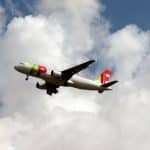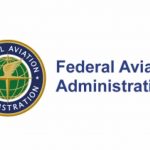MRO: Assessing African Airlines’ Maintenance Paradox
Potential
Africa has the greatest potential for growth in the aviation industry of all regions. While the country’s commitment to supporting safe, secure and sustainable air transport across Africa remains unchanged, accelerating the advancement of aviation across the continent is imperative.
MRO Africa convened in Addis Ababa by the Chief Executive Officer of African Aviation Services, Nick Fadugba from April 23-25, 2024 brought together airline CEOs along with aviation leaders, decision makers and influencers from Africa, the Middle East and globally to drive the advancement of aviation in Africa collaboratively.
MRO Africa and Aviation Training Conference and Exhibition brings African airlines, MRO service providers, original equipment manufacturers, regulatory bodies and other stakeholders together yearly to discuss common issues related to MRO services.
MRO 2024 summit
Discussions centred around the prospects for aircraft maintenance facilities across the continent with disclosure that West and Central Africa lack functional and profitable MRO to tackle the myriads of aircraft repair or maintenance challenges across the regions.
It also provided insight into the high cost of aircraft spare parts and scarcity that have contributed to the high rise of Aircraft On Ground (AOG); thereby denying the continent’s airlines the much-needed revenue. The Africa Aviation MRO Market size is estimated at $1.54 billion in 2024 and is expected to reach $1.94 billion by 2029, growing at a CAGR of 4.79 per cent during the forecast period (2024-2029).
Geriatric fleet
Aircraft operators in Africa have some of the oldest airline fleets in the world. In addition, with the current situation of the aviation industry in Africa, operators will have to operate their current fleets for some more years due to a lack of economic reserves to purchase new aircraft and modernise and expand their fleets.
This is expected to increase the demand for MRO activities in the region during the forecast period. However, many foreign MROs, based in Europe, supply expensive maintenance services to African air carriers. Therefore, African airline maintenance costs are higher than the world average. Dwindling profit margins and maintenance costs have become a very significant expense for the operators in the region.
Well-established MRO
Only a few African airlines, such as Kenya Airways, South Africa Airways, Egypt Air, and Ethiopian Airlines, have well-established inhouse maintenance facilities, and many other airlines are sending their fleet outside the continent for major maintenance activities. Thus, the growing number of investments by various companies in the African region will provide a boost to the aviation MRO services in Africa and will drive the growth of the market during the forecast period.
The group Managing Director of Africa’s most prosperous airlines, Ethiopian Airlines, Ato Mesfin Tasew, said Africa needed to be apar with the global aviation industry, noting that it had the fewest annual seats in the commercial sector, the smallest fleet of commercial and generation aviation aircraft, and the lowest number of aircraft on order in the world.
Ethiopian Airlines Speaking at the African Aviation MRO and Aviation Training Conference and Exhibition in Addis Ababa under the theme of “Strengthening Africa’s MRO and Training capacity for the future,” the aviation sector in the region, he reiterated, also faced several challenges that create a uniquely tough operating environment, including weak aviation infrastructure, high ticket prices, poor connectivity, and lack of liberalisation and an integrated intra-African network.
He further stated that the Ethiopian Maintenance, Repair and Overhaul (MRO) services, the strategic business unit of Ethiopian Airlines, was ready to cooperate with fellow African Airlines and manufacturers.
Speaking at the occasion, Tasew said the event was important for African airlines to meet with manufacturers, suppliers, and service providers in one place, to address their issues and develop relationships. It provided the opportunity to network, exchange ideas, share experiences, learn about industry trends, and engage in dialogues about future directions.
Experts’ views
Thus, the CEO noted that recognising the necessity of effective MRO services for the smooth operation and success of an airline, Ethiopian Airlines operated a modern MRO facility at its hub in Addis Ababa, established in 1957, and developed over the years. In addition to supporting Ethiopian Airlines, this facility is providing different MRO services to other airlines both in Africa and the Middle East, he elaborated.
The services include airframe, engine and component maintenance, engineering and material services. “We are investing a lot of money to further expand our MRO facilities and capabilities to meet the needs of our growing operation and cater for the needs of other airlines in the region,” he said.
Moreover, Mesfin said at this time, “we are building two more hangars, a modern component maintenance complex, and a stateof-the-art aircraft parts warehouse here at our base, which is all expected to be completed by the end of 2024.
“We understand every airline cannot do this since it needs economies of scale. However, there is a big opportunity for cooperation among African Airlines, manufacturers, suppliers and other stakeholders to avail the service in Africa at reasonable costs.”
State Minister of Transport and Logistics, Denge Boru, said Ethiopia was committed to fostering the growth and development of the aviation industry, not only in Ethiopia but across the African continent. He said: “We recognise the vital role that maintenance and overhaul play in ensuring the safety, reliability and protection of air travel, as we are dedicated to supporting initiatives that address these critical conditions.” He stressed that as key aspects of aviation safety, and excellence the MRO division required different channels and innovations.
The African Airlines Association (AFRAA) Secretary General, Abdérahmane Berthé, said on his part Africa needed safe, secure efficient and economically viable air transport to support integrated economic development. The number of aircraft operated on the African continent in the next 10 years is estimated to reach 1,429 units as a result of a growth rate of 2.3 per cent per year from 2024-34.
To operate more aircraft, it will be critical to facilitate access to aircraft financing for airlines and to develop MRO capacities across the continent, he elaborated. Finally, he called African Airlines, MROs, and African Aviation Training Organisations to cooperate better to create the needed environment for sustainable future growth of the African Air Transport market.
In his remark, Fadugba said Africa needed a safe, reliable, efficient, affordable and profitable air transport industry that facilitates travel, trade and tourism across the continent, and between Africa and the world. His words: “Much has been achieved, but many challenges remain. Aviation safety, security, training, regulatory oversight, infrastructure, liberalisation, modernisation and funding all need to be improved significantly.”
“During the African Airline Technical Directors Meeting and AATO Council Meeting held ahead of the main conference additional stumbling blocks were discussed, such as the need for more co-operation between African airlines, the supply chain logjam, the lack of sufficient trained aviation personnel, the need for fairer pricing by international suppliers and the need for increased communication between industry stakeholders,” he added.
Overview
The African aviation MRO market is fragmented, with the presence of many local and foreign MRO providers offering various types of services to aircraft operators in the region. RTX Corporation, Safran SA, Lufthansa Technik AG, Leonardo S.p.A., and Airbus SE are some of the prominent players in the market.
Over the last few years, there has been an increase in investments by foreign players aiming to increase their geographic footprint in Africa. Several local players are partnering with OEMs to gain technical expertise and the MRO certification required to perform on-site MRO services.
Last line
With the increasingly competitive environment in the MRO sector, the local players are enhancing the efficiency of their MRO processes. The market opportunities of the MRO sector in Africa and the growing investments of players are expected to rapidly increase the competition in the market in the coming years.




